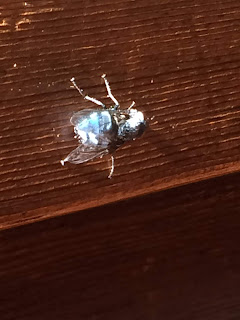One exciting part of my job while the lockdown continues is delivering food parcels. Both the Bread and Butter Thing and the Wythenshawe Food Bank are still running, exercising every care and much social distancing to provide the poorest families and people with enough to get by on.
A dramatic reconstruction
So I set out on my bike for a delivery or two yesterday, and the trip into Baguley confirmed some of my deepest suspicions about the English. Chiefly that we don't wish to be found. English house numbers are perhaps the sparsest and smallest and hardest-to-find numbers in the world. Cycling down a street trying to stay balanced and to catch a glimpse of a house number is quite a feat. House numbers in this country are very often camouflaged by being the same colour as the door. Or they're very small indeed. Or they're simply not present.
Well-lit. Clear. Please.
The other hassle is that you need two house numbers. Even when I've figured out which side of the street is odd and which is even (there are loose postal rules), spotting number 87 when I'm looking for number 189 won't tell me whether I'm going in the right direction, just that I'm 51 houses adrift of my target. It can be ten or twenty houses in either direction before I realise that the numbers are going down instead of up.
When I find the right house, the next exciting task is to unfasten the gate. Baguley was reasonably straightforward on this count, but in my time delivering flyers and food I have been baffled by bungee ropes and karabiners, not to mention the endless varieties of rusty pull-bolts and drop-bolts and push-bolts. It can take a boy a while to unlock these Crystal Maze-style defences.
Please let me in your front gate...
And then there are the letterboxes. Don't get me started. Letterboxes should be for the ease and convenience of the postal delivery worker. You only have a letterbox to receive goods and messages, so why would you deliberately instal one with spring-loaded teeth, or that was so narrow and tight it's like feeding a coloscopy camera up a patient? Why would you have one so low down that we have to crouch to deliver? Or a letterbox that creases and shreds with such resistance that I might as well not have kept things pristine en route?
This would be nice.
Maybe, on top of not wanting to be found, we don't actually want people giving us things either?
Anyway, I only broke one letterbox, but it was probably already broken and I didn't feel I could socially distance myself and apologise at the same time (but I will one day return). And on my way home I realised that there were some numbers writ large that might guide me to houses...
...except they were written on bins. Or they were huge stickers, firmly and proprietorially adhered to wheelie bins. And the message of the huge numbers was clear: "Don't steal my bin. Just don't flippin' dare. Don't even think of it. Get your thieving hands off my wheelie bin. That means you!"
Probably don't steal these...
What a curious nation. Hiding our houses but being properly jealous (in the correct etymological way) of our bins. What does it say? Who are we, sticking 42 out of sight on our front doors but two feet high on a bin?
What do you think? Gotta love the English.
But the other thing I noticed as I cycled (and recycled when the numbers went the wrong way) was the number of rainbows in windows, drawn by children (or childlike adults) to encourage others. Some observed the strict order of the visible spectrum (well done), others felt obliged to differentiate between indigo and violet (don't get me started: this is Isaac Newton's misconception that there should be seven colours in the rainbow when patently there are only six!) and I've heard of one young man who stuck religiously to the song and coloured in red and yellow and pink and green...
Somewhere amid hiding our houses and guarding our bins, we encourage each other. We - ironically - deliver. We stand on our balconies and doorsteps clapping. We blu-tac rainbows in solidarity.
I love the human race. We can stockpile bog roll and cut people up on the road, but we can fill trolleys for food banks and we can flash our headlights to say, "No, you go." We can close our doors and we can throw open our arms (and keep safe distancing). Being driven apart might lead us closer together...
What effect do you think all this will have on the human race? Will we change for good? Will we snap back to how we were? How can we strive to see good emerge from all this tragedy and all this loss of life? And what does God make of us - the English or the whole human race?


























